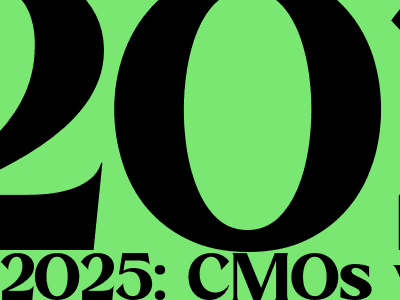
2025: CMOs Will Drive Efficiency Gains, But Marketing Headcount to Remain Stable Amid Operational Shifts
Introduction
The role of the Chief Marketing Officer (CMO) is undergoing a significant transformation as companies adapt to the digital age. In 2025, CMOs will play a pivotal role in driving efficiency gains and optimizing marketing operations. Despite these operational shifts, the overall marketing headcount is expected to remain largely unaffected.
CMOs as Efficiency Drivers
CMOs are increasingly leveraging technology to automate and streamline marketing processes. This includes the use of marketing automation platforms, data analytics tools, and artificial intelligence (AI). By harnessing these technologies, CMOs can improve campaign performance, reduce costs, and free up their teams to focus on strategic initiatives.
Additionally, CMOs are focusing on optimizing marketing spend. This involves conducting data-driven analysis to identify which channels and tactics are most effective. By allocating resources more efficiently, CMOs can maximize their return on investment (ROI) and demonstrate the value of their marketing efforts.
Operational Shifts and Marketing Headcount
Despite the efficiency gains being driven by CMOs, the overall marketing headcount is expected to remain stable in 2025. This is due to the emergence of new marketing roles and responsibilities. For example, companies are increasingly investing in digital marketing, content marketing, and social media marketing. These areas require specialized skills and expertise, leading to the creation of new positions within marketing teams.
Furthermore, the increasing complexity of the marketing landscape requires CMOs to have a broader skillset. This includes expertise in areas such as data analytics, customer relationship management (CRM), and project management. As a result, CMOs are becoming more involved in strategic decision-making and are assuming broader leadership roles within their organizations.
Conclusion
In 2025 and beyond, CMOs will continue to play a critical role in driving efficiency gains and optimizing marketing operations. The effective use of technology and data-driven decision-making will be essential for CMOs to demonstrate their value to their organizations. While operational shifts may lead to changes in the composition of marketing teams, the overall headcount is expected to remain stable as new roles emerge and CMOs take on broader responsibilities.